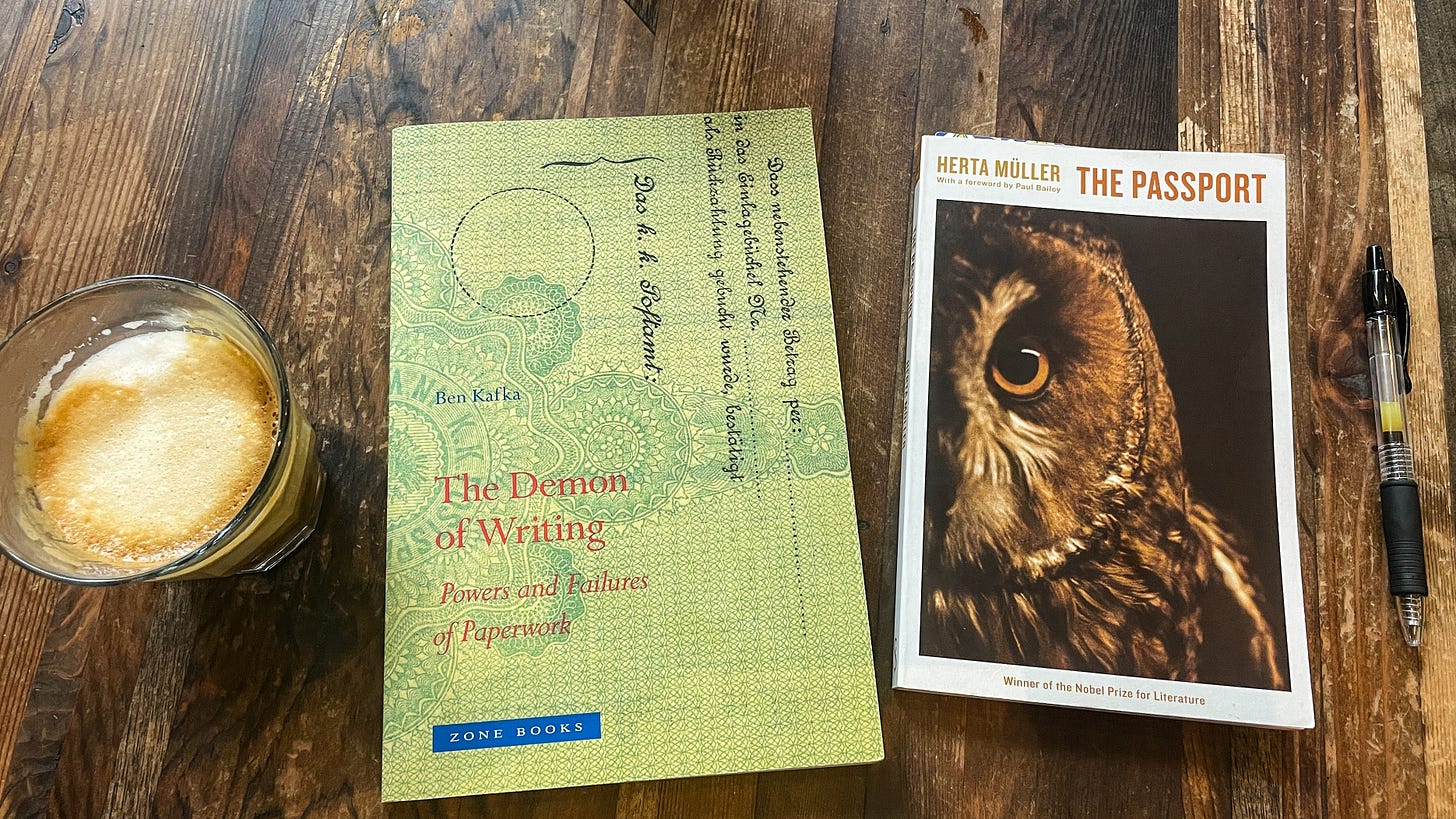Highly Recommended! Three (or Four) Things I Think You Should Read
It’s that time of the year when I start receiving requests for recommendation letters from students who are eager to take the next step in their careers and apply to graduate school or law school.
All these recommendation letters got me thinking about recommending the great writers, articles, and newsletters that I enjoy every week. So here are three articles that I think you should check out.
First up: the work of a close colleague of mine, Sarah Klosterkamp.
“Legal Ecologies of Climate Change: How Farmers are Advancing Environmental Justice in the German Courts” by Sarah Klosterkamp in Law & Space.
Just published today, Sarah uses a “legal ecology” lens to analyze efforts by farmers who are attempting to hold corporations liable in German court for their role in climate change.
“In May 2022, Allhoff-Cramer, a farmer in Germany, sued Volkswagen in German court, arguing that since Volkswagen is the second largest car company in the world, the company is partly responsible for the damage the farmer has suffered, and will suffer in the future, as a result of climate change.”
Sarah takes this initial hook in the article to talk about what she calls “legal ecologies” and provides a short reading list of articles for anyone who wants to read more. Read it here.
Second, Robert Webber’s discussion of the October visa bulletin.
“October 2022 Visa Bulletin: Various Thoughts on India EB2/EB3 Retrogression and the Road Ahead” by Robert Webber on Substack.
I read Robert’s work because although I study immigration, my angle is typically on the politics of immigration enforcement, not the labor side of immigration law. Which is why Robert’s timely analysis of the visa system has become a staple of my reading.
His most recent post examines the recent visa bulletin:
“The October 2022 Visa Bulletin has recently been published and India EB2 and EB3 cut-off dates have fallen backwards significantly. This was unexpected and frustrating, especially since EB2 I-485 applicants in particular had expected their I-485 applications to be approved soon.”
Robert’s writing is crystal clear with lots of definitions and explanations of terms, perfect for anyone looking for teachable resources or who wants to learn more about our visa system. Read it here.
Third, an important law article about how Biden’s changes to the asylum system could backfire.
“The New Border Asylum Adjudication System: Speed, Fairness, And The Representation Problem” by Schrag, Ramji-Nogales & Schoenholtz in Howard Law Journal (on SSRN).
As I wrote about back in March (“Biden Administration Announces Major Change to US Asylum Process”), the Biden administration is moving new asylum cases out of the immigration court system, which currently has about 2 million pending deportation cases of all types, and turn the responsibility over to asylum officers at USCIS who specialize in handling these types of cases.
At the time, I said this was probably a good thing overall, but cautioned that in the world of immigration law, even seemingly positive changes can lead to negative consequences. So here’s your negative consequence! From Schrag, Ramji-Nogales, and Schoenholtz: the Biden administration is trying to move these cases through too fast.
“This new adjudication system creates unrealistically short deadlines for asylum seekers who arrive over the southern border, the vast majority of whom are people of color. Rather than providing a fair opportunity for those seeking safety to explain and corroborate their persecution claims, the new system imposes unreasonably speedy time frames to enable swift adjudications.”
You can read this article on SSRN now. SSRN is a hub largely for pre-published articles (but also published work, too). For instance, Malcolm Gladwell has often talked about how he uses SSRN to find ideas for stories. In any case, you can read Schrag et al.’s article here.
Bonus recommendations.
Over the weekend I finished Herta Müller’s “The Passport” and started reading Ben Kafka’s “The Demon of Writing: Powers and Failures of Paperwork.” Both of them are great.
Hüller’s short novel is dark, but it tells the gritty story of human suffering migration after World War II. Kafka’s theorization of paperwork and power opens with one of my favorite epigraphs ever:
“Not perverts but bureaucrats will set things off, and we won’t even know if their intentions were good or bad.” —Jacques Lacan
Both come highly recommended.
What about you? What are you reading that you would recommend? Let me know in the comments if you’ve recently read a book, article, or blog post that has moved you in some way.
Support public scholarship.
Thank you for reading. If you would like to support public scholarship and receive this newsletter in your inbox, click below to subscribe for free. And if you find this information useful, consider sharing it online or with friends and colleagues.




